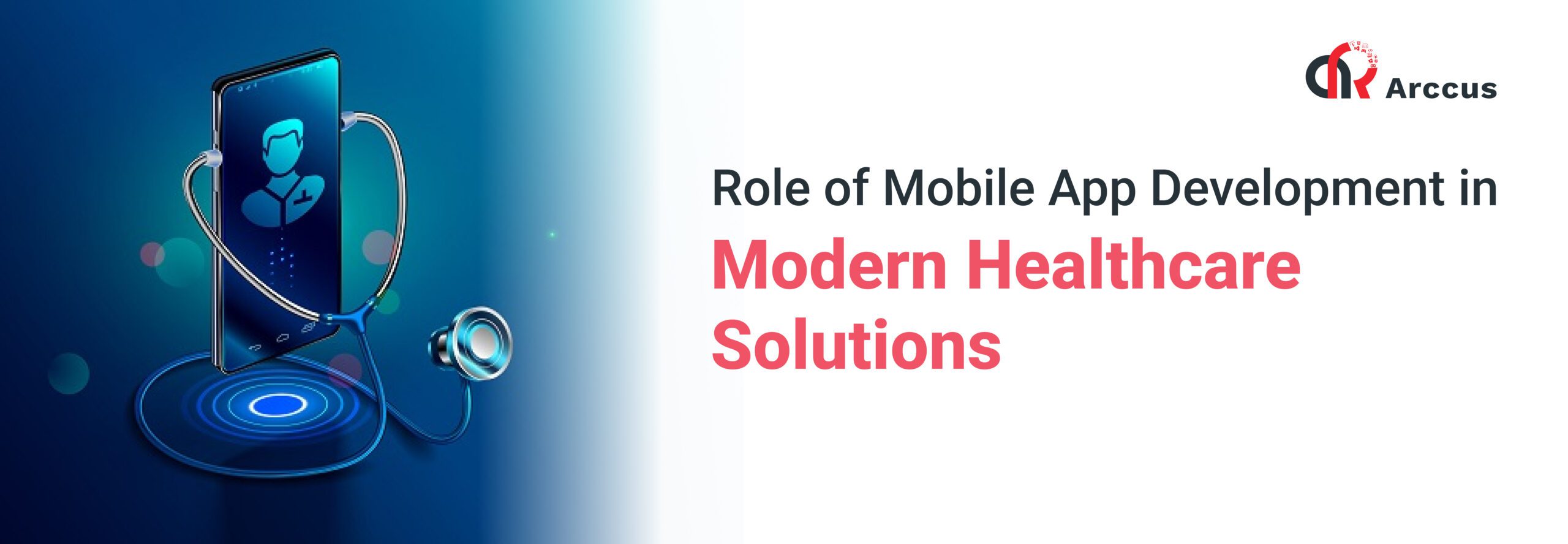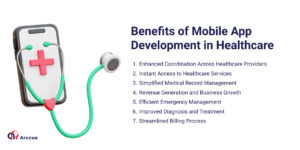The Role of Mobile App Development in Modern Healthcare Solutions

The healthcare sector has evolved significantly, thanks to the rapid advancements in technology. One of the most transformative technologies is mobile app development, which has revolutionised how healthcare is delivered and accessed. With the surge of innovations such as AI-driven healthcare, mobile apps now play a pivotal role in providing efficient, personalised, and remote medical care.
In recent years, the global digital healthcare market has been growing exponentially. Mobile apps are at the forefront of this growth, enabling more efficient healthcare delivery, improving patient outcomes, and offering seamless communication between healthcare professionals and patients. This blog explores how healthcare mobile app development is driving these changes.
Categories of Healthcare Mobile Apps
Mobile apps in healthcare can be broadly categorised based on their primary functions and target users. These categories include:
- Patient-Centric Apps:
These apps allow patients to schedule appointments, monitor their health, track medications, and even consult doctors via telemedicine.
- Healthcare Provider Apps:
Designed for doctors and medical staff, these apps facilitate access to patient records, streamline workflows, and support clinical decision-making.
- Hospital Management Apps:
These apps assist with the administration of healthcare facilities, handling tasks such as inventory management, staff coordination, and appointment scheduling.
- AI-Powered Healthcare Apps:
Integrating artificial intelligence into healthcare apps has led to advanced diagnostic tools, personalized treatment plans, and real-time data analysis for better healthcare outcomes.
Benefits of Mobile App Development in Healthcare

As mobile apps continue to transform the healthcare landscape, they bring a wide range of advantages to both patients and healthcare providers. From improving communication to simplifying administrative processes, mobile apps are proving to be invaluable tools in modern healthcare. Below are some of the most significant benefits that healthcare mobile app development offers to the industry:
1. Enhanced Coordination Across Healthcare Providers
Healthcare mobile apps help streamline communication between doctors, medical staff, and patients, improving coordination across departments and healthcare providers. Mobile apps enable quick data sharing, allowing doctors to relay diagnoses and prescribe medications efficiently. Furthermore, these apps notify patients about appointments and medical staff about necessary reports, ensuring smooth operations within medical facilities.
2. Instant Access to Healthcare Services
Healthcare mobile app development simplifies the patient experience by offering online appointment scheduling and consultation services. With just a few clicks, patients can access medical care, reducing the need for in-person visits. This digital approach allows healthcare providers to offer more flexible and efficient services, improving overall patient satisfaction.
3. Simplified Medical Record Management
Mobile healthcare apps make managing and storing medical records much more efficient. These apps allow patients to track their health data, such as diet, exercise, and sleep habits, and share it directly with their healthcare providers. AI-driven healthcare solutions further enhance this process by analyzing health data in real-time, offering doctors valuable insights for better diagnosis and treatment.
4. Revenue Generation and Business Growth
With the integration of modern technologies such as Artificial Intelligence (AI) and the Internet of Things (IoT), healthcare mobile apps are not only improving patient care but also enabling healthcare providers to expand their businesses. These technologies help optimize administrative tasks, improve patient experience, and increase profitability for healthcare professionals. AI-driven healthcare solutions are especially effective in reducing errors and providing more personalized care, enhancing the overall value proposition for healthcare businesses.
5. Efficient Emergency Management
During medical emergencies, healthcare mobile apps provide instant communication between doctors and patients, enabling timely intervention. These apps can notify medical staff of urgent cases, allowing them to prepare in advance. By speeding up paperwork and treatment procedures, mobile apps help healthcare professionals manage emergencies more effectively and reduce response times.
6. Improved Diagnosis and Treatment
Access to healthcare apps enhances the accuracy of patient diagnoses. With real-time data access, doctors can make informed decisions more quickly, reducing the risk of errors. AI-driven healthcare solutions are particularly useful in providing actionable insights from patient data, helping healthcare providers deliver accurate diagnoses and effective treatment plans.
7. Streamlined Billing Process
Healthcare mobile apps also improve the billing process, making it more efficient and reducing wait times. These apps enable patients to pay bills online, eliminating the need for physical visits to medical facilities for payment. This contributes to a better patient experience and eases administrative workloads for healthcare providers.
Technological Advancements in Healthcare Mobile App Development
Several emerging technologies are being integrated into healthcare mobile app development to enhance patient care and operational efficiency. Some of these innovations include:
- Artificial Intelligence (AI):
AI tools enable healthcare professionals to offer more personalized care and enhance patient-physician communication. AI-driven healthcare applications allow for automated data analysis, streamlining the decision-making process.
- Internet of Things (IoT):
IoT enables seamless integration between medical devices and mobile apps, allowing healthcare providers to monitor patient data remotely. IoT-powered apps facilitate real-time health tracking, improving patient care and management.
- Big Data:
The collection and analysis of health-related data through apps is becoming commonplace. Big data plays a crucial role in personalized care, enabling healthcare providers to gain insights from vast amounts of patient data to improve treatment plans.
- Blockchain:
Blockchain technology ensures secure and transparent management of medical records. This decentralized approach to data storage offers greater security and accessibility, reducing data breaches and ensuring the privacy of patient information.
Read Also: AR/VR Trends and Predictions You Won’t Believe for the Coming Years
Emerging Trends in Mobile App Development for Healthcare
- On-Demand Medical Consultations:
Mobile apps that provide on-demand doctor consultations through video calls are revolutionizing the healthcare industry. These apps offer flexibility for patients who are unable to visit a healthcare facility or need quick access to medical advice.
- Medicine Reminder Apps:
These apps help patients adhere to their prescribed medication schedules, improving treatment outcomes and recovery rates.
- Telehealth and Remote Monitoring Apps:
With the rise of telemedicine, healthcare mobile apps enable remote monitoring of patients’ health, allowing doctors to diagnose and treat patients from a distance.
- Women’s Health Apps:
Specialized mobile apps for women’s health provide personalized care for pregnant women and those with other reproductive health concerns.
- AI-Driven Healthcare Apps:
AI-driven healthcare applications provide personalized health insights and recommendations, improving patient outcomes and increasing efficiency in healthcare delivery.
Conclusion
Mobile app development in healthcare is transforming the way care is delivered, offering numerous benefits such as improved patient coordination, real-time access to healthcare services, and efficient management of medical records. As technologies like AI, IoT, and blockchain continue to evolve, mobile healthcare apps will play an even more significant role in improving patient care and optimizing healthcare provider operations.
The future of healthcare is undoubtedly digital, and mobile app development companies are at the forefront of driving this transformation. By leveraging the latest technologies, healthcare providers can offer more efficient, accessible, and personalized care to patients, marking a new era in healthcare management.